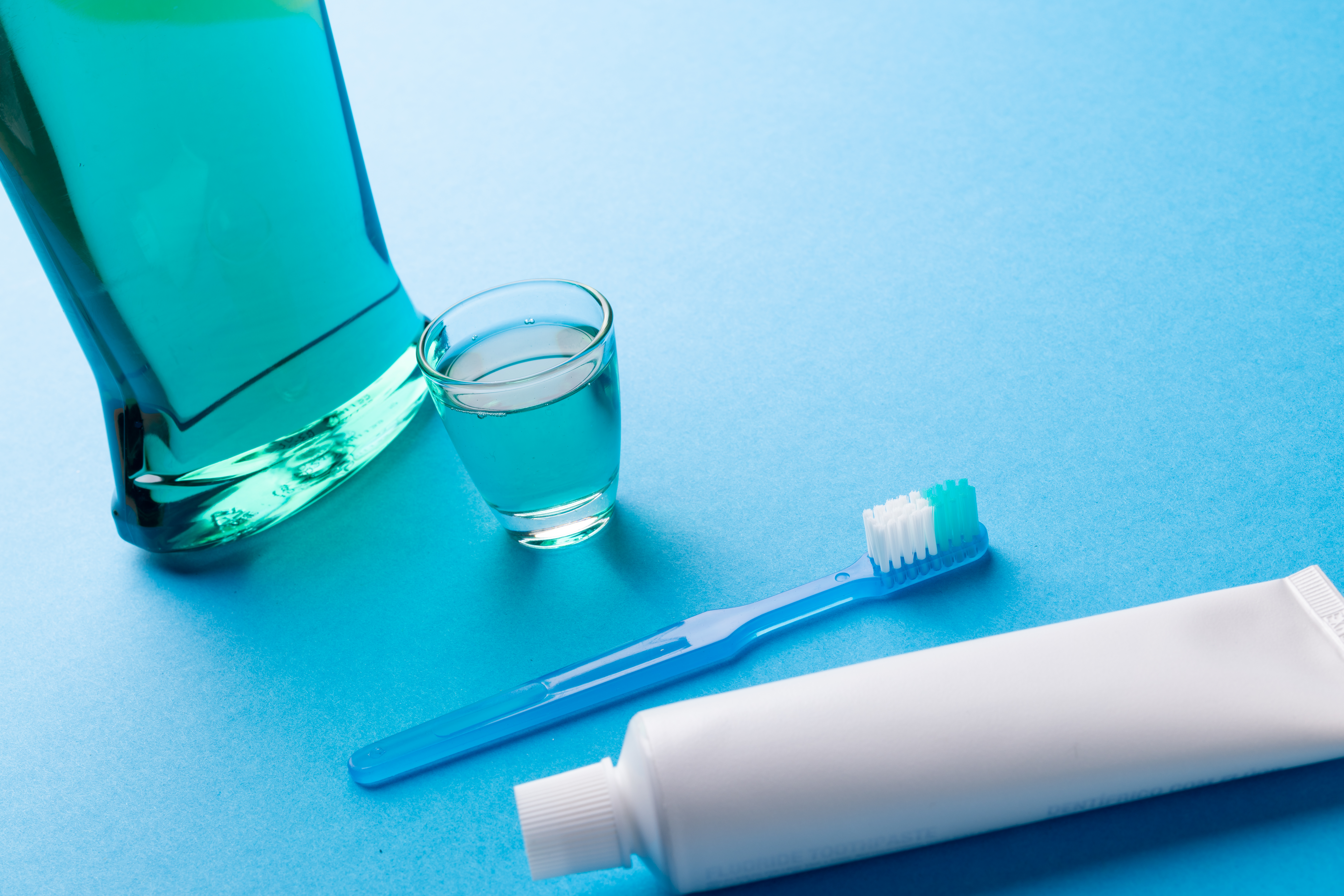Fluoride is often considered a cornerstone of dental health, yet many patients wonder how it fits into their routine, if it’s safe, and why we recommend it. As with many health recommendations, fluoride use in dentistry is about striking a balance: getting the benefits while being mindful of its application. Let’s explore how you can safely incorporate fluoride, our recommendations for patients of all ages, and why this mineral is critical for maintaining strong, healthy teeth.
Understanding the Role of Fluoride in Daily Oral Care
For most people, the primary source of fluoride is toothpaste, though it is also present in water, mouth rinses, and professionally applied products. Fluoride, when used correctly, acts as a shield against the acids that break down enamel, a mineral that covers and protects each tooth. When combined with good oral hygiene practices, such as daily brushing, flossing, and regular dental checkups, fluoride can significantly lower the risk of cavities.
- Fluoride in Toothpaste: Over-the-counter fluoride toothpaste typically contains between 1,000-1,500 ppm (parts per million) of fluoride, enough to protect the average adult and child over the age of six. Using a pea-sized amount of toothpaste for adults and a rice-sized amount for young children under six provides a balance that promotes oral health without risk of overexposure.
- Fluoride in Drinking Water: Community water fluoridation maintains fluoride levels around 0.7 ppm, a low concentration shown to reduce cavities significantly. Studies indicate that, in areas with fluoridated water, there is a reduction in cavity rates by approximately 25-30%. This is a safe, effective, and easy way for the entire community to benefit from fluoride.
Fluoride in Professional Dental Treatments
At Pecan Tree Family Dentistry, we may recommend additional fluoride treatments for patients with a higher risk of dental decay. Professional fluoride varnishes and gels are safe and contain higher fluoride concentrations than toothpaste or mouth rinses. These are applied directly to the teeth during regular checkups and are especially beneficial for patients with:
- Frequent cavities or a history of dental issues
- Dry mouth or reduced saliva production, often due to medications or medical conditions
- Dental appliances, such as braces, which can trap food and increase cavity risk
- Poor oral hygiene habits, especially in children learning to brush and floss
Professional fluoride treatments are painless, and patients can eat and drink shortly after application. For children, these treatments are often provided at regular checkups to keep their enamel strong as their teeth continue to develop.
How to Use Fluoride Safely for Different Age Groups
- Infants and Toddlers (0-3 years): For infants and toddlers, the ADA recommends starting to brush teeth as soon as the first tooth appears. Use a smear or rice-sized amount of fluoride toothpaste. While fluoridated water is safe for children in this age group, parents should be careful not to overuse fluoride toothpaste, as children may swallow it rather than spit it out. Avoid mouth rinses with fluoride until your child is old enough to spit consistently, typically around age six.
- Young Children (3-6 years): At this age, children can begin using a pea-sized amount of fluoride toothpaste. Encourage them to spit out the toothpaste after brushing and supervise their brushing to ensure they use the correct amount. While mild fluorosis is generally harmless, it can cause cosmetic concerns. Avoid giving fluoride supplements unless directed by a pediatrician or dentist.
- Older Children and Teens (6+ years): As children mature, they can generally manage their own oral hygiene and are ready for fluoride mouth rinses if recommended. If your child has braces, using fluoride can prevent the formation of white spots that can develop around brackets and wires, where food and bacteria can get trapped. We often recommend additional fluoride treatments for teens with a higher risk of cavities.
- Adults and Seniors: Adults benefit from fluoride in toothpaste, mouth rinses, and, if necessary, professional treatments. Patients with dry mouth, gum recession, or a history of cavities often benefit from additional fluoride. Seniors, in particular, may need more fluoride as gums recede with age, exposing more of the tooth’s root, which is more susceptible to decay than enamel. Dry mouth, often caused by medications, can also increase the risk of cavities, making fluoride a critical part of senior dental care.
Why Fluoride is Safe When Used Correctly
The amount of fluoride in dental products and drinking water has been carefully regulated to ensure safety. Here are a few points that help dispel myths about fluoride overuse:
- Regulated Levels: Both the Environmental Protection Agency (EPA) and the Centers for Disease Control and Prevention (CDC) oversee the fluoride levels in public water, keeping them well below the levels associated with fluorosis.
- Fluoride Toxicity is Extremely Rare: Acute fluoride toxicity is rare and requires consuming a significantly large amount of fluoride over a short period. Toothpaste tubes have safety caps, and parents are advised to supervise young children’s brushing to avoid any accidental ingestion.
- Safe When Combined with a Balanced Diet: A balanced diet that is low in sugary foods and acidic drinks reduces the need for fluoride. Limiting sugary foods and maintaining good hydration, especially with fluoridated water, contributes to healthier teeth overall.
The Impact of Fluoride on Dental Health: Research Findings
Fluoride has been one of the most extensively researched dental health topics, with numerous studies proving its effectiveness in reducing cavities:
- Cavity Reduction in Communities: In a long-term study of communities with and without water fluoridation, researchers found a 25-30% decrease in cavities among individuals who consumed fluoridated water.
- Fluoride and Enamel Strengthening: Fluoride helps re-mineralize enamel and can even reverse early stages of decay. This is because it promotes the formation of fluorapatite, a stronger, more acid-resistant mineral in teeth.
- Studies on Fluoride Safety: Multiple reviews by health organizations, including the World Health Organization (WHO) and the American Dental Association (ADA), have concluded that the regulated use of fluoride is both safe and effective for public health.
Frequently Asked Questions About Fluoride
- Is fluoride safe for children? Yes, fluoride is safe for children when used correctly. The ADA and pediatric dental associations recommend small, controlled amounts, such as a rice-sized smear of toothpaste for children under three and a pea-sized amount for those over three.
- Do natural alternatives to fluoride exist? There are some alternatives like xylitol, a sugar alcohol that can reduce cavity-causing bacteria, and hydroxyapatite, a mineral that can help with remineralization. While promising, they do not yet have the extensive research backing that fluoride does.
- Why do some countries not fluoridate their water? In certain countries, like those in Scandinavia, fluoride is available through alternative means such as tablets, toothpaste, or mouth rinses. Cultural preferences and public opinion also influence these decisions. However, countries with naturally high fluoride levels often have reduced rates of tooth decay.
Our Recommendations: Fluoride as Part of a Comprehensive Oral Health Plan
At Pecan Tree Family Dentistry, we support fluoride as an effective tool for preventing cavities. We encourage our patients to use fluoride toothpaste and drink fluoridated water as part of their daily oral care routine. For patients at high risk of cavities, we may recommend additional treatments, such as professional fluoride varnishes.
However, we also recognize that each patient has unique needs. If you have questions or concerns about fluoride, we’re here to help! Whether you’re concerned about fluoride’s safety or curious about its benefits, our team is dedicated to providing accurate information tailored to your needs.
By embracing fluoride’s benefits while understanding its appropriate use, you can confidently support your dental health for years to come. At Pecan Tree Family Dentistry, we’re committed to providing you with the best tools for a healthy smile, and we’re always here to answer your questions about fluoride or any aspect of your dental care.



